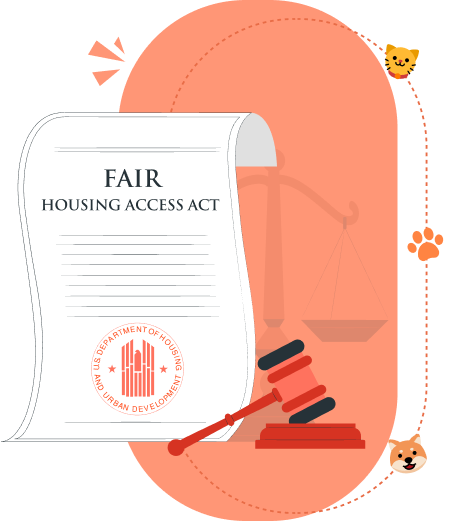Workplace Accommodations for ESAs Under New Mexico Law
ESAs aren’t defined in ADA Title I (employment). In New Mexico, disability discrimination in employment is prohibited under NMHRA. Employers with 4+ employees must consider reasonable accommodations for qualified employees with disabilities. While ADA/NMHRA guidance centers on service animals, an ESA may be requested where it helps perform essential functions or access the workplace. Employers evaluate on case-by-case basis and may propose alternatives.
Challenges of Bringing ESAs to Work
ESA access at work isn’t automatically granted. An employer may decline if it creates a direct health/safety risk, significant disruption, or undue hardship (e.g., severe allergies in close quarters, sanitation constraints, operational limits). Expect to provide reliable documentation; the employer can offer effective alternative accommodations.
Pricing
PSD Letter
Reviews
ESA By States
ESA Laws
Resources


